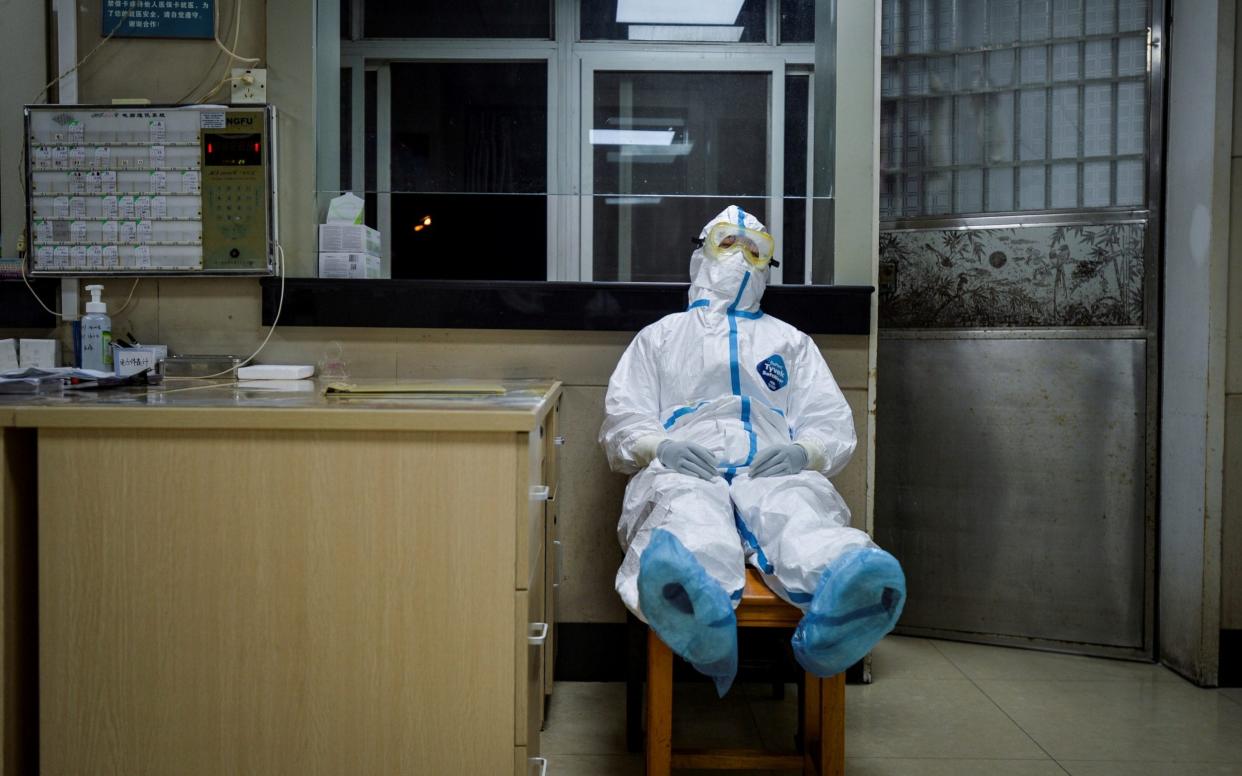Letter pleading for international help in coronavirus "not a first-hand account"

A letter written by two nurses caring for coronavirus patients in China in which they pleaded for international medical help has been retracted.
The Lancet medical journal, which published the correspondence, said the letter was "not a first-hand account, as the authors had claimed, and that they wished to withdraw the piece".
In the letter the nurses said they travelled to Wuhan from Guangzhou province to help their overwhelmed colleagues at the epicentre of the outbreak.
They said the conditions and environment in the city “are more difficult and extreme than we could ever have imagined”.
The outbreak has taken a brutal toll on health workers, infecting more than 1,700 and killing six.
The nurses wrote: “There is a severe shortage of protective equipment, such as N95 respirators, face shields, goggles, gowns, and gloves. The goggles are made of plastic that must be repeatedly cleaned and sterilised in the ward, making them difficult to see through.
“Due to the need for frequent hand washing, several of our colleagues’ hands are covered in painful rashes. As a result of wearing an N95 respirator for extended periods of time and layers of protective equipment, some nurses now have pressure ulcers on their ears and forehead."
The nurses wrote that they were among the first cohort of 14,000 health workers who went voluntarily to Wuhan to support local health staff but they say much more help is needed - this is in direct contrast to the message from Chinese authorities who have repeatedly turn down offers of assistance.
“We are asking nurses and medical staff from countries around the world to come to China now, to help us in this battle,” they write.
They also described the psychological toll on health workers.
“Like everyone else, we feel helplessness, anxiety and fear. Experienced nurses occasionally find the time to comfort colleagues and try to relive our anxiety, But even experienced nurses may also cry, possibly because we do not know how long we need to stay here and we are the highest risk group for infection,” they wrote.
At a press conference on Tuesday, Dr Bruce Aylward, who led WHO’s international fact-finding mission to China, was full of praise for the authorities’ response and he urged other countries to learn from their example.
Dr Aylward said the measures introduced by China such as implementation of strict quarantine measures, rapid construction of hospitals and mobilisation of the community, have had a direct impact on the trajectory of the outbreak.
“The unanimous assessment of the team is that the Chinese have changed the course of this outbreak. It has plateaued and come down faster than what one would have expected if you had looked at the natural dynamic,” he said.
“Hundreds of thousands of people in China did not get Covid-19 becasue of this aggressive response,” he said.
In a briefing today WHO director general Dr Tedros Adhanom Ghebreyesus said that countries had to prioritise the protection of health workers.
Protect yourself and your family by learning more about Global Health Security. And sign up to our weekly newsletter here.

 Yahoo News
Yahoo News 
